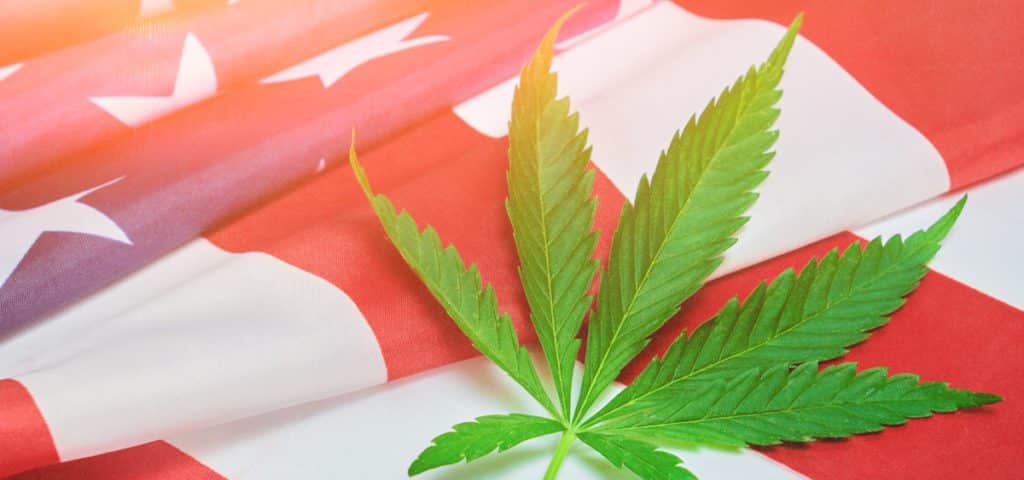Group says rescheduling is simply a rebranding of prohibition, not the end of it.
WASHINGTON, D.C. – In response to reporting this week that the Department of Health and Human Services (HHS) is recommending to the Drug Enforcement Administration (DEA) that cannabis be reclassified under the Controlled Substances Act (CSA) from Schedule I to Schedule III, a group of drug policy reform nonprofits and cannabis industry trade organizations focused on social justice are urging the Biden administration to make good on its promise to decriminalize cannabis by fully removing cannabis from the list of controlled substances.
The groups include: Drug Policy Alliance (DPA), Minority Cannabis Business Association (MCBA), National Cannabis Industry Association (NCIA), Parabola Center for Law and Policy, Better Organizing to Win Legalization/BOWL PAC, Students for Sensible Drug Policy (SSDP) and Marijuana Justice.
During his 2020 campaign President Biden promised to decriminalize cannabis, a pledge that can only be fully realized by removing the substance from the CSA schedule entirely (aka “descheduling”).
“While our organizations acknowledge that HHS’s recommendation will appear as a step forward, it would fail to decriminalize cannabis, lawfully permit the existence of the medical and adult-use programs and businesses that now operate in 38 states, or rectify decades of injustice associated with more than 25 million arrests and related collateral consequences since the creation of the CSA by Richard Nixon. Reclassification would continue to perpetuate a system that disproportionately affects minority communities, leaving the social justice promise of cannabis reform unfulfilled,” said leaders of the advocacy and business groups.
Facts and Perspectives
Fact: Rescheduling marijuana will not release anyone currently incarcerated for a marijuana conviction or expunge any marijuana-related records. Nor would it address the immigration related consequences which are a leading cause of deportation of immigrants to the US or restore eligibility for public benefits such as housing and nutritional assistance for people with marijuana convictions.
“President Biden’s statement on marijuana reform in October 2022 and his administration’s characterization of marijuana reform as an equity issue demonstrates that this Administration understands that criminalization has failed and disproportionately harmed Black and Latino communities. It’s extremely disappointing that despite this acknowledgment and promises made to communities — rescheduling marijuana without further action, allows criminalization to continue and leaves most of the harms caused by criminalization in place,” said Cat Packer, director of drug markets and legal regulation at the Drug Policy Alliance.
Fact: Rescheduling will not federally legalize the existing medical and adult-use regulatory programs which currently exist in 38 states or state-legal cannabis industry businesses which currently employ over 400,000 workers.
“We have patiently waited for the Biden Administration to act on their word and it’s time to move past half-measures and towards genuine reform that will impact individuals, not just business owners. We urge President Biden to align his policy with the majority of Americans who favor legalization and move to create opportunities for people of color who have been disproportionately targeted by criminalization to start and succeed in the emerging legal cannabis industry,” said Kaliko Castille, president of the Minority Cannabis Business Association (MCBA).
Fact: Rescheduling marijuana to Schedule III would permit existing cannabis companies to no longer be penalized by IRS section 280E, which prevents companies taking standard business deductions associated with the illicit sale of Schedule I or II drugs, but would not provide any tax relief or other protections specifically for small businesses.
“While rescheduling cannabis would be a step forward, it does nothing to align federal law with the 38 U.S. states which have already effectively regulated cannabis for medical or adult use. The only way to fully resolve the myriad of issues stemming from the federal conflict with state law is to remove cannabis from the Controlled Substances Act and regulate the product in a manner similar to alcohol. The vast majority of Americans live in states with laws that depart from federal law on this issue and where thousands of regulated Main Street businesses are serving the legal cannabis market safely and responsibly. It’s long past time to truly harmonize federal policy with the laws in those states,” said National Cannabis Industry Association CEO Aaron Smith.
Fact: Rescheduling would not allow legal access to state-authorized medical marijuana programs. It could, however, lead to marijuana products being prohibited as unapproved drugs by the Food and Drug Administration (FDA).
“Classifying marijuana like ketamine and steroids still conflicts with current state laws. This decision could replace our successful state policies with a system that prohibits the plant itself and only allows pharmaceutical cannabis products. We urge the Biden administration to protect marijuana consumers and prioritize existing mom-and-pop shops over pharmaceutical corporations,” said Shaleen Title of Parabola Center for Law and Policy.
Fact: Rescheduling marijuana does not qualify as the Biden Administration keeping its campaign promise to decriminalize marijuana.
“A super-majority of Americans, including majorities of Democrats, Republicans, and independents, support ending the federal criminalization of marijuana, which would not be accomplished under rescheduling, as Schedule 3 maintains federal criminal penalties for mere possession, including against those in compliance with state adult-use and medical cannabis laws. In order for President Biden to truly fulfill his campaign promise to decriminalize marijuana, it must be removed from the CSA entirely,” said Justin Strekal, founder of The BOWL PAC.
